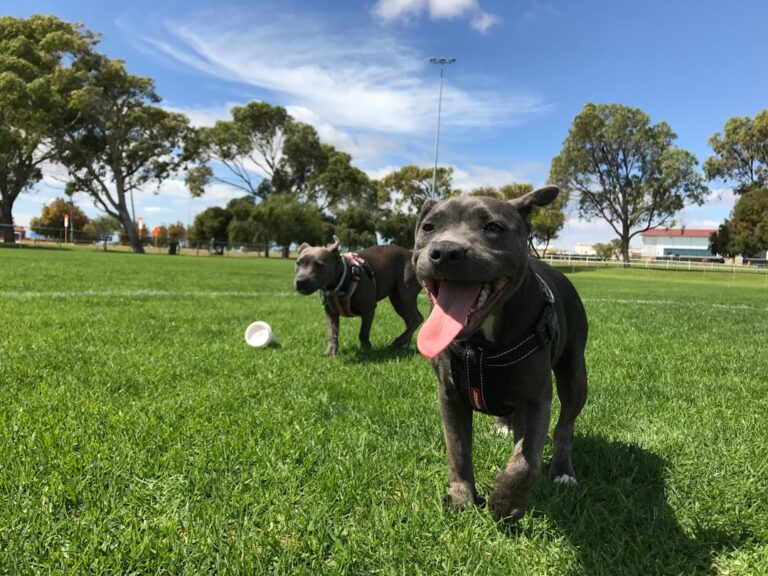Nutrition plays a pivotal role in the overall health and well-being of pets, influencing everything from their energy levels to their longevity. A balanced diet tailored to the specific needs of a pet—whether it be a dog, cat, or other animal—is essential for maintaining optimal health. For instance, dogs require a mix of proteins, fats, carbohydrates, vitamins, and minerals to thrive.
High-quality commercial pet foods are formulated to meet these nutritional needs, but it is crucial for pet owners to read labels carefully and choose products that list real meat as the primary ingredient. Additionally, the age, size, and activity level of the pet should guide dietary choices. Puppies and kittens, for example, have different nutritional requirements compared to adult or senior pets.
Moreover, the importance of hydration cannot be overstated. Fresh water should always be available, as it is vital for digestion, nutrient absorption, and temperature regulation. Some pets may benefit from wet food, which can help increase their water intake.
It’s also worth noting that certain human foods can be toxic to pets; chocolate, grapes, and onions are just a few examples. Educating oneself about safe and unsafe foods is an essential part of responsible pet ownership. By prioritizing nutrition and making informed dietary choices, pet owners can significantly enhance their pets’ quality of life.
Key Takeaways
- Good nutrition is essential for your pet’s overall health and well-being.
- Regular exercise is important to keep your pet physically fit and mentally stimulated.
- Mental stimulation through play and training helps keep your pet’s mind sharp and engaged.
- Regular grooming and proper hygiene practices are crucial for your pet’s health and comfort.
- Veterinary care, including regular check-ups and vaccinations, is essential for preventing and treating health issues in pets.
- Socialization with other animals and people is important for your pet’s emotional well-being.
- Providing a safe and comfortable environment is key to ensuring your pet feels secure and happy.
- Monitoring your pet’s behavior can help you identify any changes or potential health issues early on.
- Preventative care, such as flea and tick prevention, is important for keeping your pet healthy.
- Dental health is crucial for your pet’s overall well-being and should not be overlooked.
- Showing love and affection to your pet is important for building a strong bond and promoting their emotional health.
Regular Exercise
Regular exercise is fundamental to maintaining a pet’s physical health and mental well-being. Just like humans, pets require physical activity to stay fit and healthy. For dogs, daily walks are not only an opportunity for exercise but also a chance for social interaction and mental stimulation.
Different breeds have varying exercise needs; for instance, high-energy breeds like Border Collies or Labrador Retrievers may require more vigorous activities such as running or playing fetch, while smaller or less active breeds may be satisfied with shorter walks or play sessions. Cats also benefit from regular exercise, although their needs differ from those of dogs. Engaging a cat in play can be achieved through interactive toys like feather wands or laser pointers.
Creating an environment that encourages climbing and exploration can also help keep a cat active. Regular exercise helps prevent obesity, reduces behavioral issues stemming from boredom, and strengthens the bond between pet and owner. Establishing a routine that incorporates physical activity is essential for both the pet’s health and the owner’s enjoyment.
Mental Stimulation

Mental stimulation is as crucial as physical exercise for pets. Engaging a pet’s mind can prevent boredom and reduce the likelihood of destructive behaviors. Dogs thrive on challenges that require problem-solving skills; puzzle toys that dispense treats when solved can keep them entertained for hours.
Training sessions that teach new commands or tricks not only provide mental stimulation but also reinforce good behavior and strengthen the bond between pet and owner. Cats also require mental engagement to stay happy and healthy. Providing scratching posts, climbing structures, and interactive toys can stimulate their natural instincts to hunt and explore.
Additionally, rotating toys regularly can keep a cat’s environment fresh and exciting. Incorporating training exercises or even simple games like hide-and-seek can further enhance a cat’s mental stimulation. By prioritizing mental engagement alongside physical activity, pet owners can create a well-rounded routine that supports their pets’ overall well-being.
Grooming and Hygiene
| Category | Metric | Value |
|---|---|---|
| Grooming | Showering frequency | Once a day |
| Grooming | Brushing teeth | Twice a day |
| Hygiene | Hand washing | Before meals and after using the restroom |
| Hygiene | Changing clothes | Every day |
Grooming is an essential aspect of pet care that goes beyond mere aesthetics; it plays a significant role in maintaining a pet’s health. Regular brushing helps remove loose fur and dirt while distributing natural oils throughout the coat, promoting a healthy shine. Different breeds have varying grooming needs; long-haired breeds may require daily brushing to prevent matting, while short-haired breeds may only need occasional grooming.
Bathing should be done judiciously; over-bathing can strip natural oils from the skin and coat. Hygiene extends beyond grooming; dental care is another critical component often overlooked by pet owners. Regular brushing of a pet’s teeth can prevent dental disease, which is common in both dogs and cats.
Dental chews and toys can also aid in maintaining oral health by reducing plaque buildup. Additionally, keeping a pet’s ears clean and checking for signs of infection or wax buildup is vital for overall hygiene. By establishing a regular grooming routine that includes both coat care and dental hygiene, pet owners can significantly contribute to their pets’ health.
Veterinary Care
Routine veterinary care is indispensable for ensuring a pet’s long-term health. Regular check-ups allow veterinarians to monitor a pet’s growth, weight, and overall condition while providing vaccinations that protect against various diseases. Early detection of health issues can lead to more effective treatment options; therefore, scheduling annual or biannual visits is crucial for maintaining a pet’s well-being.
In addition to routine check-ups, pet owners should be aware of the importance of preventative care measures such as flea and tick prevention, heartworm medication, and spaying or neutering. These practices not only protect individual pets but also contribute to public health by reducing the spread of diseases among animal populations. Keeping an open line of communication with a veterinarian allows pet owners to stay informed about the latest advancements in veterinary medicine and best practices for their specific breed or species.
Socialization

Socialization is an often-overlooked aspect of pet care that significantly impacts behavior and temperament. For dogs, early socialization is crucial; exposing them to various environments, people, and other animals during their formative months helps them develop into well-adjusted adults. Puppy classes are an excellent way to facilitate socialization while also providing basic training skills.
Cats also benefit from socialization, although their needs differ from those of dogs. Introducing cats to new experiences gradually can help them become more adaptable and less fearful of unfamiliar situations. Providing opportunities for positive interactions with other pets or people can enhance a cat’s confidence and reduce anxiety-related behaviors.
By prioritizing socialization from an early age, pet owners can foster well-rounded companions who are comfortable in various settings.
Safe and Comfortable Environment
Creating a safe and comfortable environment is paramount for any pet’s well-being. This includes providing adequate shelter from extreme weather conditions—whether it be heat in the summer or cold in the winter—as well as ensuring that living spaces are free from hazards such as toxic plants or small objects that could be swallowed. For indoor pets, creating designated areas where they can retreat for rest or play is essential for their comfort.
Additionally, enriching the environment with appropriate toys, scratching posts for cats, or cozy beds can enhance a pet’s quality of life. For dogs, having access to a secure outdoor space where they can explore safely is beneficial for both physical exercise and mental stimulation. By taking the time to assess and improve their living conditions, pet owners can create an environment that promotes happiness and health.
Monitoring Behavior
Monitoring a pet’s behavior is crucial for identifying potential health issues early on. Changes in appetite, energy levels, or social interactions can signal underlying problems that may require veterinary attention. For instance, if a normally playful dog suddenly becomes lethargic or disinterested in activities they once enjoyed, it may indicate pain or illness that warrants further investigation.
Behavioral changes can also stem from environmental factors such as stress or anxiety. Recognizing signs of distress—such as excessive barking, hiding, or destructive behavior—can help owners address issues before they escalate into more significant problems. Keeping a journal of behavioral observations can assist in tracking changes over time and provide valuable information during veterinary visits.
By being vigilant about their pets’ behavior, owners can take proactive steps toward ensuring their pets’ health and happiness.
Preventative Care
Preventative care encompasses various practices aimed at maintaining a pet’s health before issues arise. This includes regular vaccinations to protect against common diseases such as rabies or parvovirus in dogs and feline leukemia in cats. Additionally, routine screenings for parasites like fleas, ticks, and worms are essential components of preventative care.
Nutrition also plays a role in preventative health; feeding pets high-quality diets tailored to their specific needs can help prevent obesity-related issues such as diabetes or joint problems later in life. Regular exercise contributes to overall fitness and helps mitigate risks associated with sedentary lifestyles. By adopting a comprehensive approach to preventative care that includes veterinary visits, proper nutrition, exercise, and parasite control, pet owners can significantly enhance their pets’ quality of life.
Dental Health
Dental health is often an overlooked aspect of pet care but is critical for overall well-being. Just like humans, pets are susceptible to dental diseases such as periodontal disease if proper oral hygiene is not maintained. Regular brushing of a pet’s teeth is one of the most effective ways to prevent plaque buildup; however, many pet owners may find this challenging at first.
In addition to brushing, providing dental chews or toys designed to promote oral health can help reduce tartar buildup while keeping pets entertained. Regular veterinary dental cleanings are also essential; these professional cleanings allow veterinarians to thoroughly assess oral health and address any issues that may arise. By prioritizing dental care as part of a comprehensive health regimen, pet owners can help ensure their furry companions enjoy healthier lives.
Love and Affection
Finally, love and affection are fundamental components of responsible pet ownership that cannot be overlooked. Pets thrive on companionship; they are social animals that form strong bonds with their human caregivers. Regular interaction through playtime, cuddling, or simply spending time together fosters emotional well-being and strengthens the human-animal bond.
Positive reinforcement during training sessions not only teaches pets desirable behaviors but also builds trust between owner and animal. Understanding each pet’s unique personality allows owners to tailor their interactions accordingly—some pets may prefer quiet moments while others thrive on active playtime. By providing consistent love and affection alongside proper care practices, pet owners create an environment where their companions feel secure and cherished.












